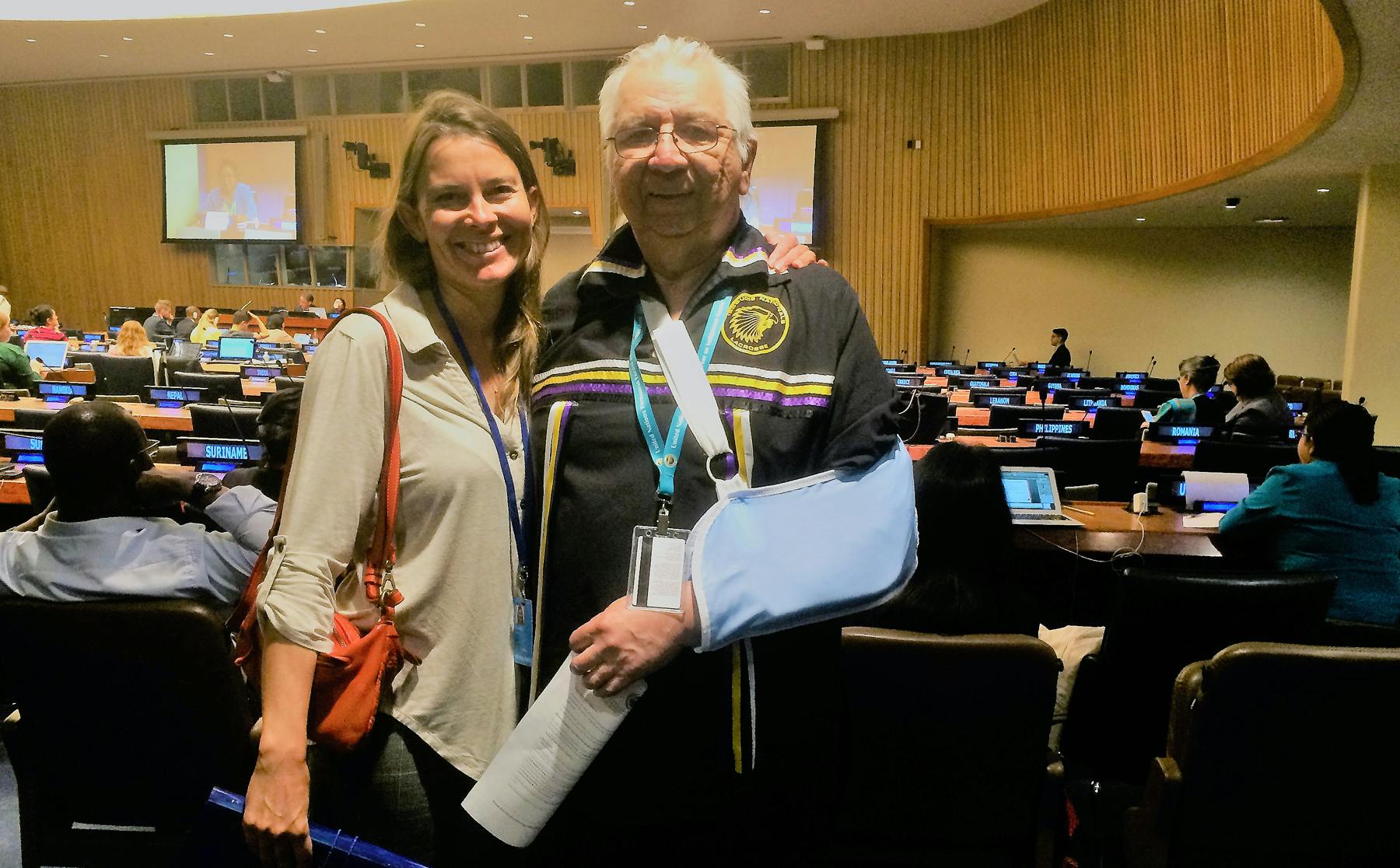Ulia Gosart, a lecturer in UCLA’s Department of Information Studies, has published a commentary in The Los Angeles Times on “Celebrating indigenous peoples and how they gained a voice on the world stage. In it, she describes the history of attempts by indigenous leaders to participate in the United Nations and their work in defending the rights of indigenous peoples.
“The U.N. estimates that indigenous communities account for more than 370 million people who live across 90 countries, and speak a majority of the world’s languages,” Gosart writes. “In legal terms, indigenous communities are distinguished from other minorities in that they are recognized as the only cultural groups with the right to self-determination. This allows them to claim autonomy from their states’ governments.”
Gosart cites the efforts of indigenous groups in Nordic states, New Zealand and Australia who reached out to native peoples beyond their borders to create an international movement, the World Council of Indigenous Peoples, in 1975. This was the first international body representing the rights of indigenous peoples in the global arena.
“The council gained status as a nongovernmental organization, affiliated with the U.N. as a civil society partner,” writes Gosart. “This position allowed the council’s members to observe meetings of the U.N.’s Working Group on Indigenous Populations and offer expert advice. Since then, the number of native leaders, activists and scholars supporting indigenous causes at the Working Group has mushroomed from fewer than 15 in 1982-83 to more than 400 by 1993.”
Gosart notes that, “Indigenous politics represent some of the most advanced developments of our time, despite the ironic stereotype of native communities being viewed as ‘vanishing peoples.’ While indigenous leaders can claim autonomy from their home states, they recognize that their communities share a common history and concerns with the population of those states. Most of them aim to wield greater influence over matters that specifically impact their people, such as environmental protection and education and the economy, while contributing to solving global problems, like climate change.
“Ultimately, indigenous politicians want the world community to realize that to live in peace is to share the world together by accommodating each other, rather than assimilating the weaker,” Gosart writes. “This idea goes back to indigenous teachings that assert that no nation or state can claim absolute sovereignty because the universe does not exist to accommodate an exclusive place for one group at the expense of others.”
In May, Gosart organized a discussion on the protection of traditional indigenous knowledge at the 16th session of the United Nations Permanent Forum on Indigenous Issues on in New York.
To read the full commentary by Gosart in the Los Angeles Times, click here.
Courtesy of Ulia Gosart
